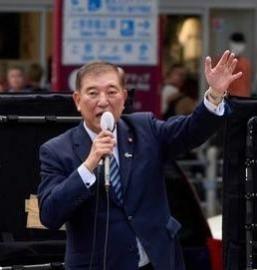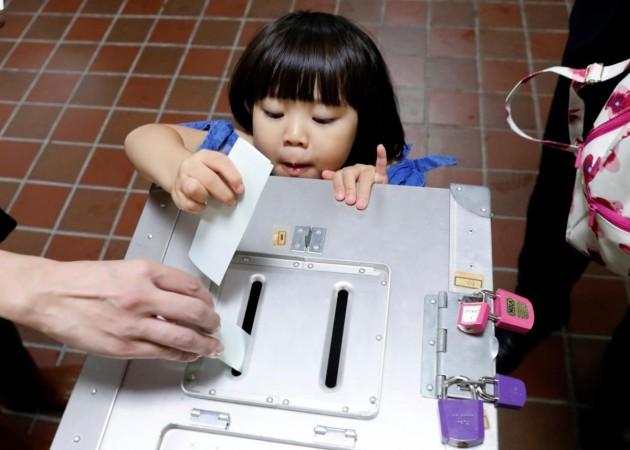Japan is making history with a record number of women candidates running for the general election scheduled for October 27. Despite this significant increase, women still represent less than a quarter of the total candidates, as reported by local media on Wednesday.

The newly appointed Prime Minister, Shigeru Ishiba, is striving to consolidate his mandate in the upcoming vote by maintaining a majority for the long-standing Liberal Democratic Party (LDP). Japan has yet to see a woman hold the prime ministerial position.
Ishiba narrowly defeated one of the country's few prominent female politicians, nationalist Sanae Takaichi, in a party leadership vote to secure the top job.
The election campaigns kicked off on Tuesday with 1,344 lower house candidates vying for all 465 seats. Among these candidates, a record 314 are women, as reported by Japanese media outlets including the Yomiuri and Asahi dailies.
This figure represents approximately 23 percent of the total candidates, marking a record high in the history of Japanese politics. One of the reasons behind this increase is Ishiba's efforts to encourage women to run for office. This initiative is particularly significant in cases where former lawmakers have been embroiled in slush fund scandals. The previous record for women candidates was 229, set in the 2009 general election.
Japan's Gender Gap Challenge
Despite these strides, female leaders remain a rarity in Japanese business and politics. The 2024 World Economic Forum's Global Gender Gap report ranks Japan 118 out of 146 countries. Ishiba's 20-member cabinet includes only two women.
However, the government has set an ambitious goal: by 2025, they aim for 35 percent of the candidates for the powerful lower house of parliament to be women. This is a significant increase from the 18 percent recorded in 2017.

Historically, Japan has been a male-dominated society, particularly in politics and business. The country's traditional societal norms and gender roles have often been cited as barriers to women's advancement in these sectors. However, the increasing number of women running in the general election indicates a shift in these norms and a step towards gender equality.
This development is not isolated to Japan. Globally, there has been a gradual increase in the number of women participating in politics. For instance, in the 2018 US midterm elections, a record number of women were elected to Congress. Similarly, in the 2019 general elections in India, the country saw the highest ever percentage of women MPs elected to the Lok Sabha, the lower house of parliament.
As Japan moves towards its goal of 35 percent female representation in the lower house by 2025, it will be interesting to see how this increased participation impacts Japanese politics and society at large.















